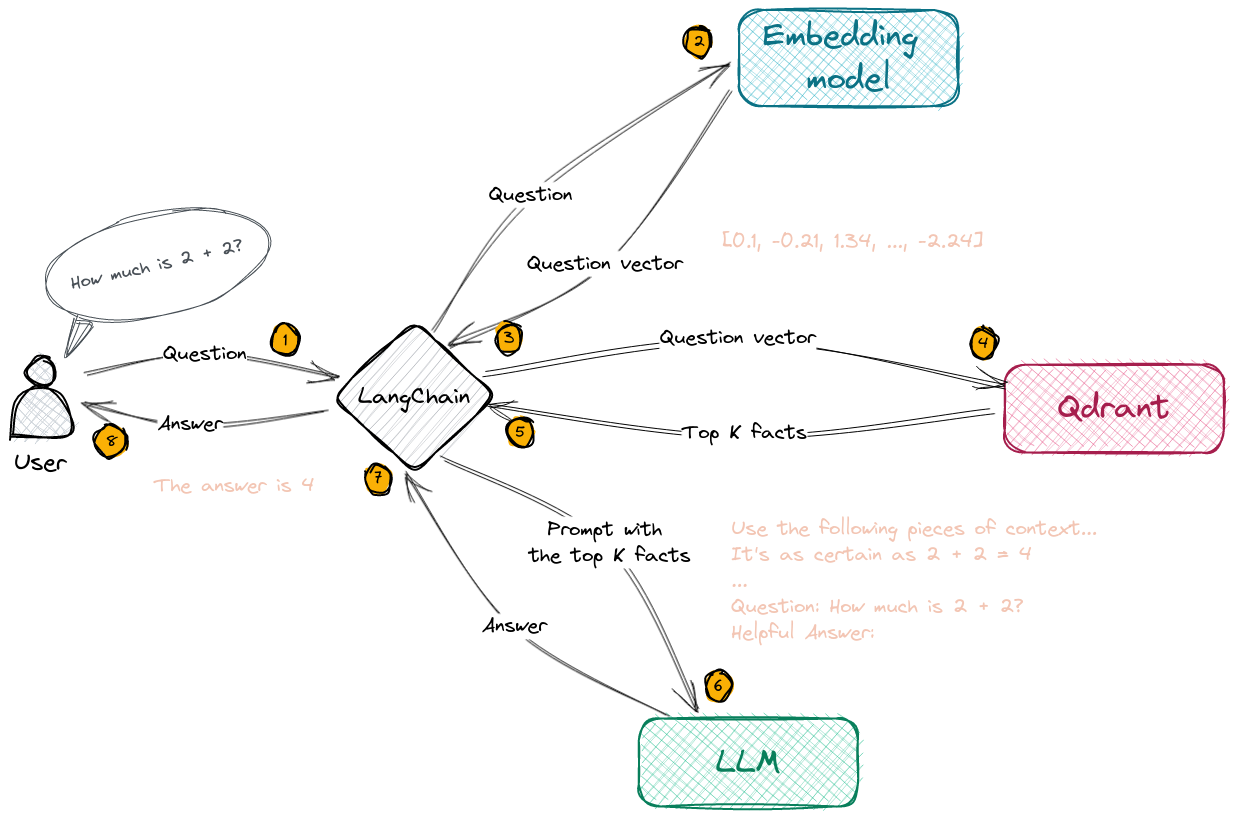docker pull su77ungr/casalioy:stabledocker run -it su77ungr/casalioy:stable /bin/bashfor older docker without GUI use casalioy:latest might deprecate soon
Fetch the default models
cd models
wget https://huggingface.co/Pi3141/alpaca-native-7B-ggml/resolve/397e872bf4c83f4c642317a5bf65ce84a105786e/ggml-model-q4_0.bin &&
wget https://huggingface.co/eachadea/ggml-vicuna-7b-1.1/resolve/main/ggml-vic7b-q5_1.bin
cd ../
All set! Proceed with ingesting your dataset
First install all requirements:
python -m pip install poetry
python -m poetry config virtualenvs.in-project true
python -m poetry install
. .venv/bin/activate
python -m pip install --force streamlit sentence_transformers # Temporary bandaid fix, waiting for streamlit >=1.23
pre-commit installIf you want GPU support for llama-ccp:
pip uninstall -y llama-cpp-python
CMAKE_ARGS="-DLLAMA_CUBLAS=on" FORCE_CMAKE=1 pip install --force llama-cpp-pythonDownload the 2 models and place them in a folder called
./models:
- LLM: default is ggml-vic7b-q5_1
- Embedding: default to ggml-model-q4_0.
Edit the example.env to fit your models and rename it to .env
# Generic
MODEL_N_CTX=1024
LLAMA_EMBEDDINGS_MODEL=models/ggml-model-q4_0.bin
# Ingestion
PERSIST_DIRECTORY=db
DOCUMENTS_DIRECTORY=source_documents
INGEST_CHUNK_SIZE=500
INGEST_CHUNK_OVERLAP=50
# Generation
MODEL_TYPE=LlamaCpp # GPT4All or LlamaCpp
MODEL_PATH=models/ggjt-v1-vic7b-uncensored-q4_0.bin
MODEL_TEMP=0.8
MODEL_STOP=###,\nThis should look like this
└── repo
├── startLLM.py
├── ingest.py
├── source_documents
│ └── sample.csv
│ └── shor.pdfstate_of_the_union.txt
│ └── state_of_the_union.txt
├── models
│ ├── ggml-vic7b-q5_1.bin
│ └── ggml-model-q4_0.bin
└── .env, convert.py, Dockerfile
To automatically ingest different data types (.txt, .pdf, .csv, .epub, .html, .docx, .pptx, .eml, .msg)
This repo includes dummy files inside
source_documentsto run tests with.
python ingest.py # optional <path_to_your_data_directory>Optional: use y flag to purge existing vectorstore and initialize fresh instance
python ingest.py # optional <path_to_your_data_directory> yThis spins up a local qdrant namespace inside the db folder containing the local vectorstore. Will take time,
depending on the size of your document.
You can ingest as many documents as you want by running ingest, and all will be accumulated in the local embeddings
database. To remove dataset simply remove db folder.
In order to ask a question, run a command like:
python startLLM.pyAnd wait for the script to require your input.
> Enter a query:Hit enter. You'll need to wait 20-30 seconds (depending on your machine) while the LLM model consumes the prompt and prepares the answer. Once done, it will print the answer and the 4 sources it used as context from your documents; you can then ask another question without re-running the script, just wait for the prompt again.
Note: you could turn off your internet connection, and the script inference would still work. No data gets out of your local environment.
Type exit to finish the script.
Introduced by @alxspiker -> see #21
streamlit run .\gui.py| Model | BoolQ | PIQA | HellaSwag | WinoGrande | ARC-e | ARC-c | OBQA | Avg. |
|---|---|---|---|---|---|---|---|---|
| ggml-vic-7b-uncensored | 73.4 | 74.8 | 63.4 | 64.7 | 54.9 | 36.0 | 40.2 | 58.2 |
| GPT4All-13b-snoozy q5 | 83.3 | 79.2 | 75.0 | 71.3 | 60.9 | 44.2 | 43.4 | 65.3 |
| Model | BoolQ | PIQA | HellaSwag | WinoGrande | ARC-e | ARC-c | OBQA | Avg. |
|---|---|---|---|---|---|---|---|---|
| GPT4All-J 6B v1.0 | 73.4 | 74.8 | 63.4 | 64.7 | 54.9 | 36.0 | 40.2 | 58.2 |
| GPT4All-J v1.1-breezy | 74.0 | 75.1 | 63.2 | 63.6 | 55.4 | 34.9 | 38.4 | 57.8 |
| GPT4All-J v1.2-jazzy | 74.8 | 74.9 | 63.6 | 63.8 | 56.6 | 35.3 | 41.0 | 58.6 |
| GPT4All-J v1.3-groovy | 73.6 | 74.3 | 63.8 | 63.5 | 57.7 | 35.0 | 38.8 | 58.1 |
| GPT4All-J Lora 6B | 68.6 | 75.8 | 66.2 | 63.5 | 56.4 | 35.7 | 40.2 | 58.1 |
all the supported models from here (custom LLMs in Pipeline)
- Download ready-to-use models
Browse Hugging Face for models
- Convert locally
python convert.pysee discussion
Selecting the right local models and the power of LangChain you can run the entire pipeline locally, without any data
leaving your environment, and with reasonable performance.
-
ingest.pyusesLangChaintools to parse the document and create embeddings locally usingLlamaCppEmbeddings. It then stores the result in a local vector database usingQdrantvector store. -
startLLM.pycan handle every LLM that is llamacpp compatible (defaultGPT4All-J). The context for the answers is extracted from the local vector store using a similarity search to locate the right piece of context from the docs.
The contents of this repository are provided "as is" and without warranties of any kind, whether express or implied. We do not warrant or represent that the information contained in this repository is accurate, complete, or up-to-date. We expressly disclaim any and all liability for any errors or omissions in the content of this repository.
By using this repository, you are agreeing to comply with and be bound by the above disclaimer. If you do not agree with any part of this disclaimer, please do not use this repository.



